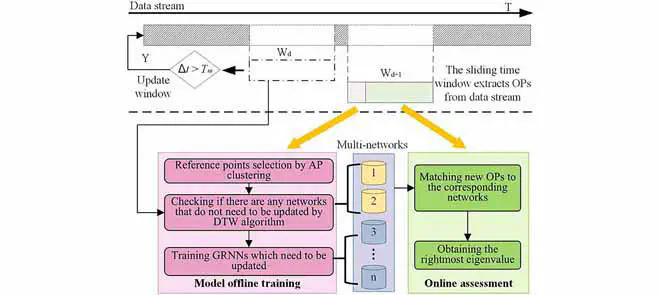摘要
Machine learning technologies have been applied to improve the real-time performance of small-signal stability assessment, while achieving a high accuracy requires numerous samples, and model performance may degrade if not updated over time. Furthermore, single models tend to learn general features without analyzing specific characteristics within the samples, which may lead to a high frequency of large errors, particularly at operating points where the eigenvalue trajectories have sudden changes. Facing such issues, this paper introduces the concept of reference points for accurate online tracking of the rightmost eigenvalue, as the reference points information reflects the characteristics among its surrounding operating points. The performance of this model is sensitive to reference points, so affinity propagation clustering is employed to determine the number of reference points and generate corresponding groups, accommodating diverse operating points characteristics. This paper generates data-driven networks for each group and combines them into a multi-network for precise rightmost eigenvalue prediction. Case studies show that the use of reference points improves accuracy by nearly 2% compared to methods without them, with even greater improvements in mixed load type scenarios. To mitigate computational stress, this paper proposes an adaptive partial update strategy based on the dynamic time warping algorithm, avoiding the need to update all networks within each sliding time window. Experimental results verify that the total running time is reduced by more than 10%. Online tracking demonstrates that reference points help decrease the frequency of large errors by 40%, especially at sudden change points of rightmost eigenvalue trajectories.




